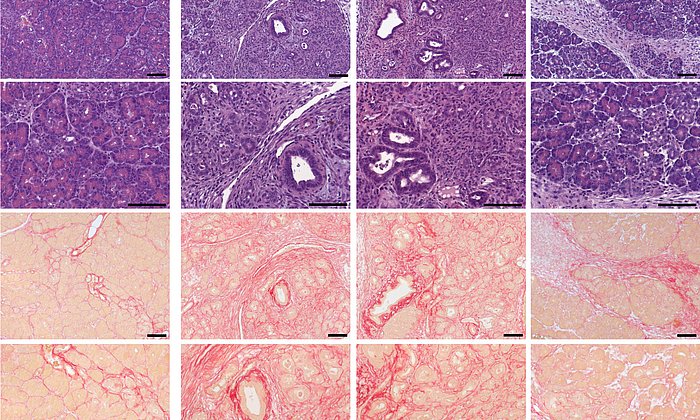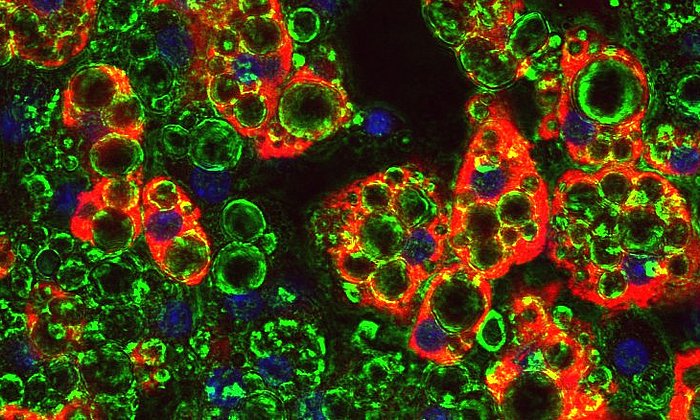Expansion of the EKFZ: Additional thematic focus “Nutrition in Childhood“
Healthy eating - despite Corona

Since the beginning of the Corona pandemic, children have been eating more sweets, such as chocolate, gummy bears, cookies, and ice cream, but also more fruit. This is one of the results of a survey conducted by the EKFZ in conjunction with the opinion research institute Forsa. According to the survey, boys in particular have been consuming snacks more frequently than before the pandemic, with 22 percent of boys consuming more sweets, 20 percent consuming more snack food, and 12 percent more soft drinks. Ten to twelve-year-old children in particular were less likely to resist sweet or salty foods (23 percent and 28 percent respectively).
For the study, the research team interviewed one-thousand parents of children up to 14 years of age in September 2020. 38 percent of them stated that their children have been less physically active than before the pandemic started. This is particularly true among ten to twelve-year-olds, with 57 percent of parents stating that their children’s physical activity has reduced. At the same time, an increase in body weight has been particularly noticeable in ten to twelve-year-old children, with boys (27 percent) being affected nearly twice as often as girls (14 percent).
Importance of nutritional medicine in times of Corona
“When calorie intake and consumption diverge in the long term, it can promote obesity, which is why the development of children’s body weight should be monitored as the corona pandemic progresses,” says Hans Hauner, professor of Nutritional Medicine at the TUM and Director of the EKFZ. Above all, this should be seen against the background that in Germany, at least one in six children is overweight, and the proportion of children with obesity has risen sharply in recent decades.
“Our lifestyle plays a decisive role in nutrition-related diseases,” adds Heiko Witt, professor of Pediatric Nutritional Medicine at the TUM. Under pandemic conditions, metabolic and nutritional research is of particular importance.
New research focus: Nutrition in Childhood
Within the framework of a new cooperation between the TUM and the Clinical Center of the Ludwig-Maximilians-University (LMU) Munich under the umbrella organization the EKFZ, medical expertise in the Munich Metropolitan Region is now collected and current questions about nutritional medicine can be researched in greater depth.
Since October, the EKFZ has been further strengthened by close cooperation with Professor Berthold Koletzko, Else Kröner Senior-Professor at the Dr. von Haunersches Kinderspital of the LMU University Hospital. Professor Koletzko’s work focuses on early risk factors for becoming overweight or obese as well as on diseases associated with those conditions including diabetes, heart attack, and stroke.
In their first project on the theme “Nutrition in Childhood”, Professor Koletzko is going to work in close cooperation with Professor Hauner. They will jointly evaluate blood samples from pregnant women with and without obesity as well as with and without gestational diabetes in the hope of finding new biomarkers for gestational diabetes. In another project, Professor Koletzko is working with Professor Witt on the influence of nutrition in the second year of life on growth and metabolism.
Martin Klingenspor, professor of Molecular Nutritional Medicine at the TUM, is working with Professor Koletzko to investigate the influence of the diet of expectant mothers on the development of the childs fatty tissues. Professor Klingenspor states, “The diet of the mother during pregnancy and lactation influences the development of the child’s nervous system. These early influences shape the circuit diagram for hunger, satiety, and reward in the brain. This leads to a lifelong programming of the energy balance, i.e. the regulation of energy intake, consumption, and storage”.
Else Kröner-Fresenius-Foundation further promotes nutritional science
The Else Kröner-Fresenius-Foundation is once again continuing to promote the medical science of nutrition in the Munich Metropolitan Region, both in Freising-Weihenstephan and Munich. One million euros will flow into the new Else Kröner Senior-Professorship at the LMU and thus into the cooperation project with the EKFZ. The overriding goal is educating the general population about healthy eating.
The summary of the study results can be found in German at www.ekfz.tum.de.
The EKFZ is located in both the TUM School of Life Sciences and the TUM School of Medicine - an expression of the innovative approach to combine classical nutritional sciences with modern medical research. The success of this concept has been demonstrated by groundbreaking studies on topics such as nutrition during pregnancy, diseases of the digestive organ, and research into brown fat cells. The Else Kröner-Fresenius-Foundation initiated the establishment of the EKFZ and financed it with 11 million euros. This was followed in 2018 by funding the EKFZ with additional 5 million euros over the course of 5 years.
The Else Kröner-Fresenius-Foundation was created in the 1983 by Else Kröner, neé Fernau, who bequeathed it all her assets. The non-profit Else Kröner-Fresenius-Foundation promotes medical science and supports medical-humanitarian projects. The foundation derives almost all of its income from dividends from the Fresenius health care group, which is the largest shareholder. In accordance with its statutes, the foundation only supports those research projects, which make results accessible to the public. To date, the foundation has supported more than 2,000 projects. With a current annual funding volume of approximately 60 million euros, it is the largest foundation in Germany to support medicine.
Technical University of Munich
Corporate Communications Center
- Dr. Katharina Baumeister-Krojer
- katharina.baumeister@tum.de
- presse@tum.de
- Teamwebsite
Contacts to this article:
Prof. Dr. Hans Hauner
Technical University of Munich
Director of the Else Kröner-Fresenius-Center for Nutritional Medicine
Chair of Nutritional Medicine
phone: +49 8161 71 2000
e-mail: hans.hauner(at)tum.de



